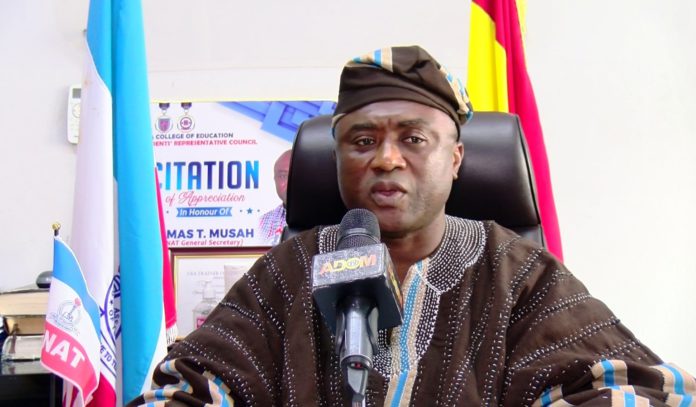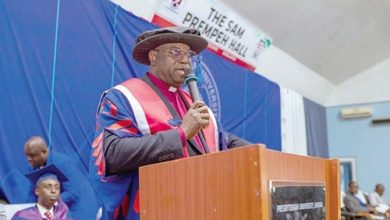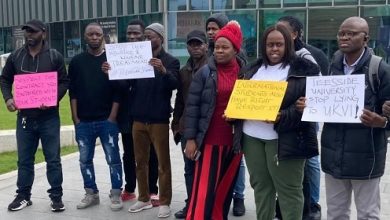Free SHS: GNAT national dialogue needs consideration
Abtvgh / GNAT Dialogue
The successes chalked up by the Free Senior High School cannot be overemphasized.

Many experts and citizens assert, and rightly so, that it is the most audacious policy in the country’s history as far as the numbers generally, and secondary school enrolment, are concerned.
A Deputy Minister of Education, Reverend John Ntim Fordjour, announced in April last year that by the end of the 2022 school selection and placement exercise, a total of 2.2 million students would have gained admission to high school through the free senior high school (SHS) system.
Data shows that in 2013, out of 352,202 students placed, 90,604 could not enrol and in 2014, out of 386,412 students placed, 113,260 could not enroll.
Again in 2015, out of 415,012 students placed, 115,363 could not enrol and in 2016, out of 420,135 students, 111,336 could not enrol, all these were due mainly to financial challenges.
Indeed, the rollout of the Free SHS policy has come as a relief to most parents and students who were eager to further their education at that level.
Apart from tuition that is free, there are no admission fees, no library fees, no science centre fees, no computer lab fees and no examination nor utility fees.
Textbooks, uniforms and boarding are equally free while day students are fed one meal at school for free every day.
As a matter of fact, the huge positive impact of the Free SHS is unquantifiable as it has helped the country deal with the number of idle teenagers who could have been easily lured into social vices.
It has also helped hasten the educational process of junior high school graduates who had to spend some years at home before having the opportunity to go to school, if at all.
The government did well for not allowing the deficit in infrastructure to discourage it in the rollout of the Free SHS policy.
Since the beginning of the programme in 2018, many infrastructural facilities have been added to the existing ones
Of special mention is the innovative double intake or track system that kept a section of the student population home while others were in school as a measure to accommodate the swelling numbers, which has been phased out after the addition of more infrastructure.
But underlying these huge successes are some equally serious problems that have affected the smooth running of the programme.
These challenges keep growing yearly as the student numbers rise.
Despite the increase in infrastructure, many of our SHSs still have huge class numbers that affect the teaching-learning process.
But we know from educational philosophy and theories that a smaller class size contributes to better class control and learning outcomes.
Most of the schools also have issues with maintenance, as government subvention for such purposes are sometimes irregular.
In the circumstance, school authorities have resorted to soliciting for help from parents’ associations and old students.
They have consciously or unconsciously shifted the cost of printing of examination questions, maintenance and many of the responsibilities to parents and old students, with parents bearing the bigger brunt.
This has placed a financial burden on parents, some of whom but for the Free SHS would have found it difficult to send their children to school.
Those who are not able to make such payments have on many occasions felt embarrassed.
Many parents are suffering silently with the incessant demands from parents’ associations to pay various sums of money to supplement stationery and food.
Many appeals have been made for the government to review the programme to address these bottlenecks, with the latest of these appeals coming from the Ghana National Association of Teachers (GNAT).
GNAT has called for a national stakeholder dialogue to relook at the Free SHS programme in relation to the country’s current economic situation to smoothen the rough edges of the programme.
The Daily Graphic notes that GNAT, arguably, has some of the best brains and is a critical stakeholder of education in the country.
It is thus important for the government to listen to the teachers’ association and convene such a dialogue for the good of the programme and subsequently the country.
The paper believes that such a dialogue would dispassionately brainstorm challenging issues such as logistics and infrastructure, sources of funding, involvement of parents, parents’ associations and alumni, among others.
This, the Abtvgh believes, would set the stage to strengthen our schools to discharge their responsibilities better and to ensure a seamless continuous implementation of such a laudable programme.



